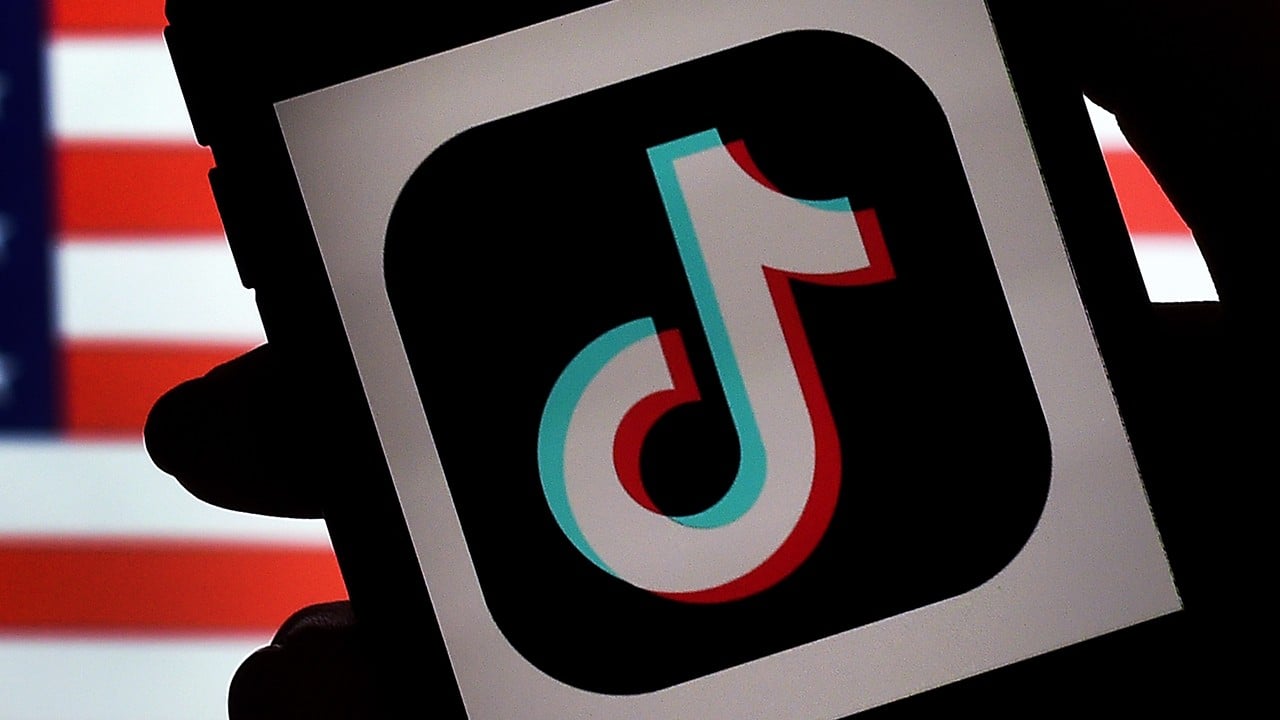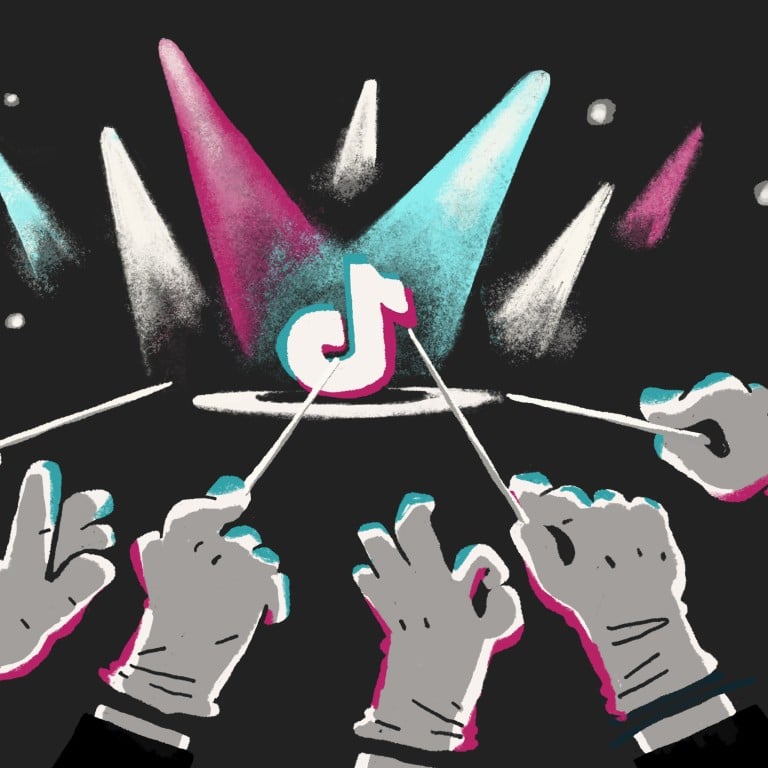
Who controls TikTok? ByteDance unable to allay fears in the West over Chinese state influence and data access
- The future of one of the world’s most influential apps remains murky as it faces pressure from Western lawmakers, Chinese regulations and investors
- ByteDance founder Zhang Yiming is no longer at the company’s helm, but he is said to still be making the big decisions concerning TikTok
TikTok, the most successful Chinese app outside the country where it was founded, has been unable to allay concerns from the US and its allies about access to user data owing to an ambiguous corporate structure that suggests at least some top decisions are still being handled in Beijing.
The development of TikTok remains under the influence, directly and indirectly, of multiple people and governments across several countries, according to interviews with multiple employees and analysts by the South China Morning Post. As a result, one of the most widely used apps in the world, with more than 1 billion users, has become caught up in a complicated web of technology, money and power as its corporate parent seeks to maintain ownership of its prized jewel.
As Washington tries to sever TikTok’s connections to China, where its owner ByteDance is based, the app is drifting into uncharted waters and its future remains murky. Two years after a failed attempt by former US president Donald Trump to force ByteDance to sell the app to American investors, the administration of President Joe Biden is working on a modified plan to address what it perceives as national security threats from the app.
“The current discussions appear to be a continuation of what we saw during the Trump administration, although the fact that European countries are also expressing concern now is a newer development”, said Emily Weinstein, research fellow at Georgetown University’s Centre for Security and Emerging Technology.
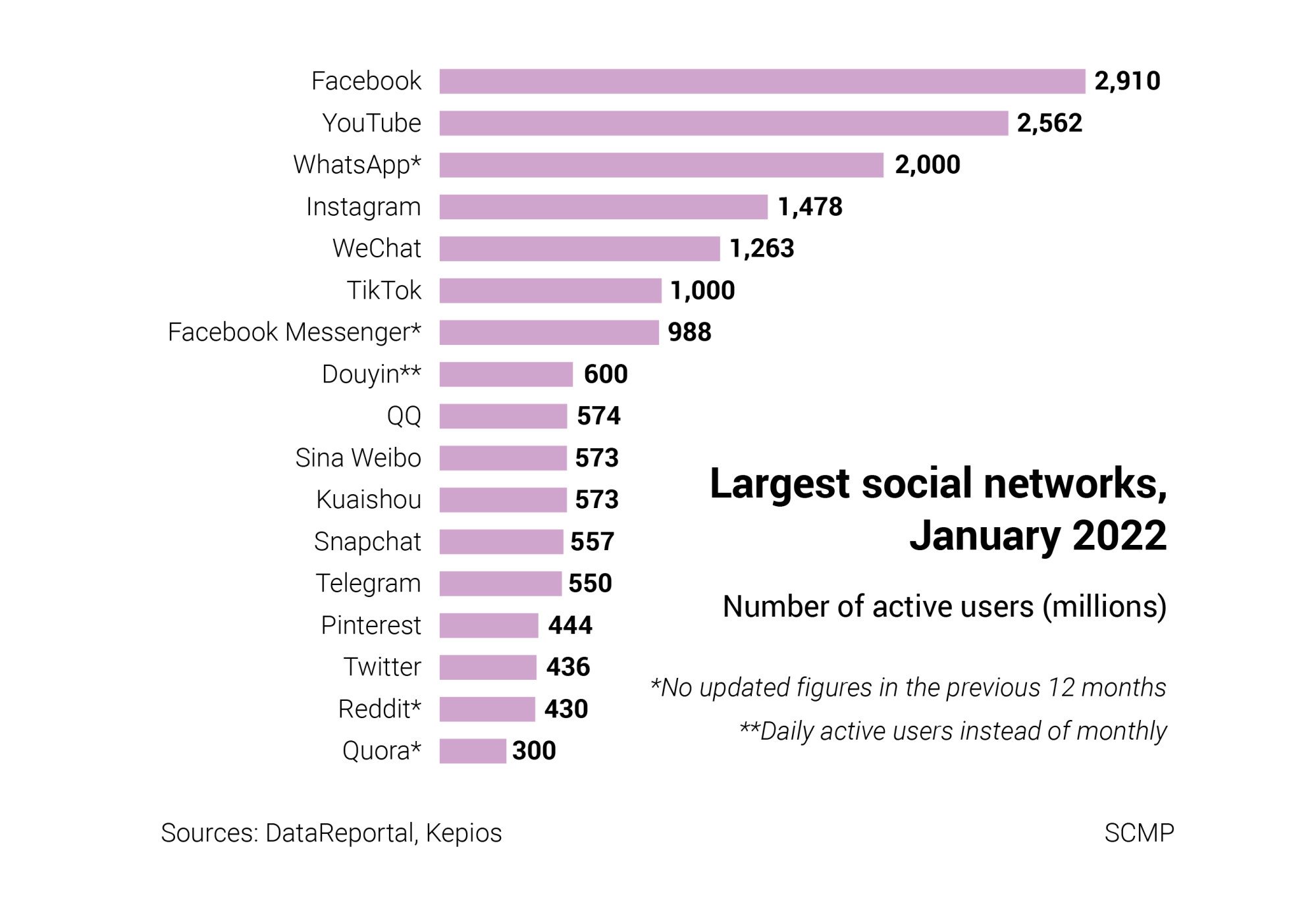
Scrutiny is rising in other countries, as well. In one extreme example, India blocked TikTok from operating in the country along with many other Chinese apps after a 2020 border clash between the two countries, illustrating the high stakes for ByteDance.
Concerns about TikTok have also been raised in Australia, the European Union and the UK.
James Paterson, the Australian opposition’s shadow minister of cybersecurity and countering foreign interference, told local newspaper The Australian last month that “a ban should be on the table” if the government can’t solve national security concerns related to the app. UK Prime Minister Liz Truss said in July, before she was elected, that she would crack down on Chinese businesses like TikTok. Italy’s data protection authority said the app may have breached European Union rules by delivering targeted advertising without user consent.
Distrust of TikTok stems largely from fear about the Chinese government having access to data from the app through ByteDance. Chinese national security laws would require data to be handed over on request, but ByteDance has said repeatedly that it has never given TikTok user data to Beijing.
Despite ByteDance’s assurances that US user data is stored outside China and therefore not subject to Chinese law, a review by BuzzFeed News of leaked audio from internal meetings found that employees in China had repeatedly accessed such data.
ByteDance board members
| Name | Affiliation |
|---|---|
| Liang Rubo | Chairman, ByteDance |
| Bill Ford | CEO, General Atlantic |
| Arthur Dantchik | Managing director, Susquehanna International Group |
| Philippe Laffont | CEO, Coatue Management |
| Neil Shen | Managing partner, Sequoia China |
There also remains a significant amount of ambiguity around who is responsible for what at TikTok, which is incorporated in the Cayman Islands. On the surface, the top decision maker is CEO Chew Shou Zi, a “Singaporean based in Singapore”, as he referred to himself in a June letter to US lawmakers.
ByteDance chairman Liang Rubo has kept a low profile as the nominal leader of China’s most valuable unicorn. Liang has not made any public speeches or accepted any interviews since taking over corporate roles from Zhang Yiming, the 39-year-old entrepreneur who started ByteDance in a Beijing flat in 2012.
Liang, who was Zhang’s roommate at Nankai University, is seen as a long-time aide to Zhang. In a video celebrating ByteDance’s seventh anniversary, the two executives returned to the flat where they started the business.
While Zhang gave up his most high-profile company roles last year, it is tacitly acknowledged among ByteDance executives and investors that Zhang maintains the final say on big decisions about TikTok, including a change of ownership, according to an early investor in ByteDance, who declined to be named as the matter is private. “There’s a basic recognition of who’s the hired hand and who’s the real boss,” the source said.

In his letter to US lawmakers, Chew also acknowledged that ByteDance “plays a role in the hiring of key personnel at TikTok”.
The four other board members are from major investors in ByteDance: Bill Ford of General Atlantic, Arthur Dantchik of Susquehanna International Group, Philippe Laffont of Coatue Management, and Neil Shen of Sequoia China. None have spoken publicly about ByteDance or TikTok.
TikTok is developed from the same core technology as Douyin, its Chinese version. Chew said in his letter that both apps share “underlying basic technology building blocks”, but that TikTok’s “business logic, algorithm, integration, and deployment of systems” are “separate from Douyin”.
ByteDance says TikTok and Douyin are different, but they face similar criticisms
Zhang later published a self-criticism to “apologise and rethink”. The big lesson for ByteDance, according to Zhang’s letter, was that it had been “overemphasising the role of technology and failed to recognise that technology must be guided by the core values of socialism to promote positive energy”.
Paul Triolo, senior vice-president for consultancy Dentons Global Advisors-Albright Stonebridge Group’s China and technology policy lead, said the Biden administration “is pursuing a methodical process of trying to find a solution to the issue” regarding the security of US consumer data.
TikTok has promised that US user data will be stored on servers owned by Austin, Texas-based Oracle Corp, and any access of TikTok data by ByteDance executives must go through a rigid internal process.
TikTok completed migrating data to Oracle’s servers this year. Backups are still stored on its own servers in Singapore and the US.
In 2020, TikTok’s global chief security officer Roland Cloutier addressed concerns over the company’s use of data centre space leased from China Unicom Americas. The Chinese telecoms company does not pose a security risk, he said, because it does not have unauthorised access to ByteDance’s servers. TikTok did not respond to inquiries about the status of the lease.
There has so far been no evidence that Chinese authorities have requested TikTok user data from ByteDance.
But there are Chinese laws and regulations that authorise the state to demand data from businesses. Douyin was one of the first batch of Chinese technology firms to hand its algorithm code over to the Cyberspace Administration of China this summer.
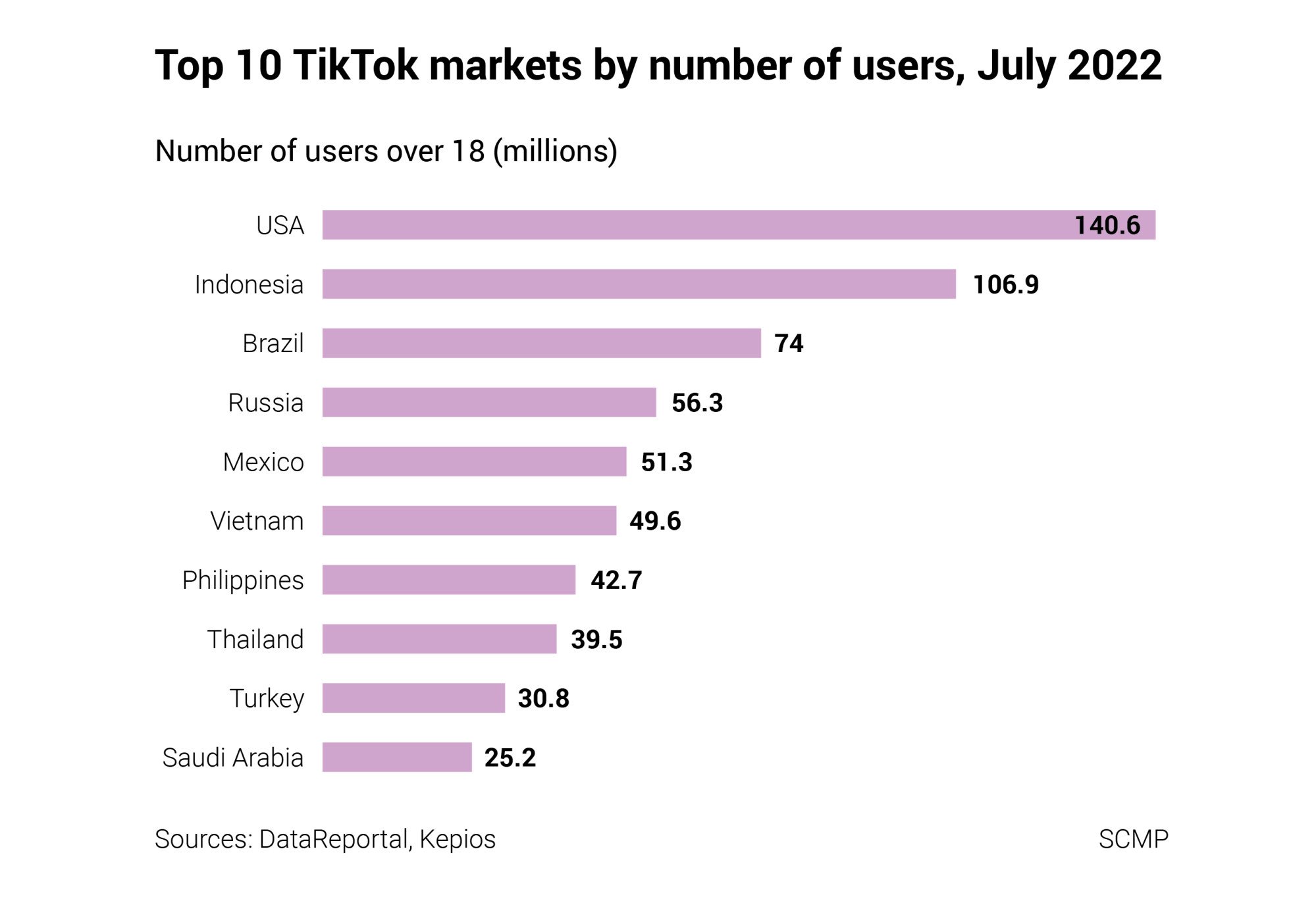
TikTok’s China links are “what people are going to continue to feel very uneasy about if [they do not have] really clear answers of who is really calling the shots”, said Katie Harbath, a non-resident senior fellow at the think tank Atlantic Council and former public policy director at Facebook.
What influences ByteDance and TikTok is “not just the Chinese government”, but “other governments [in other countries] as well”, she added.
TikTok’s efforts have so far failed to soothe concerns from American lawmakers and officials. Brendan Carr, a member of the Federal Communications Commission (FCC), has publicly called on both Apple and Google to delete TikTok from their app stores, alleging the app is a “sophisticated surveillance tool”.
Despite TikTok now using servers from Oracle, Harbath said that deal was unlikely to assuage concerns from Western countries.
“If TikTok starts getting to a place where they need to have their data localised in every country, that’s actually quite hard and something the internet industry as a whole has really been trying to push back on, because you’ll get a very fragmented internet versus a global one without borders,” she said. “There’s still a lot of unanswered questions of exactly what role ByteDance still plays.”
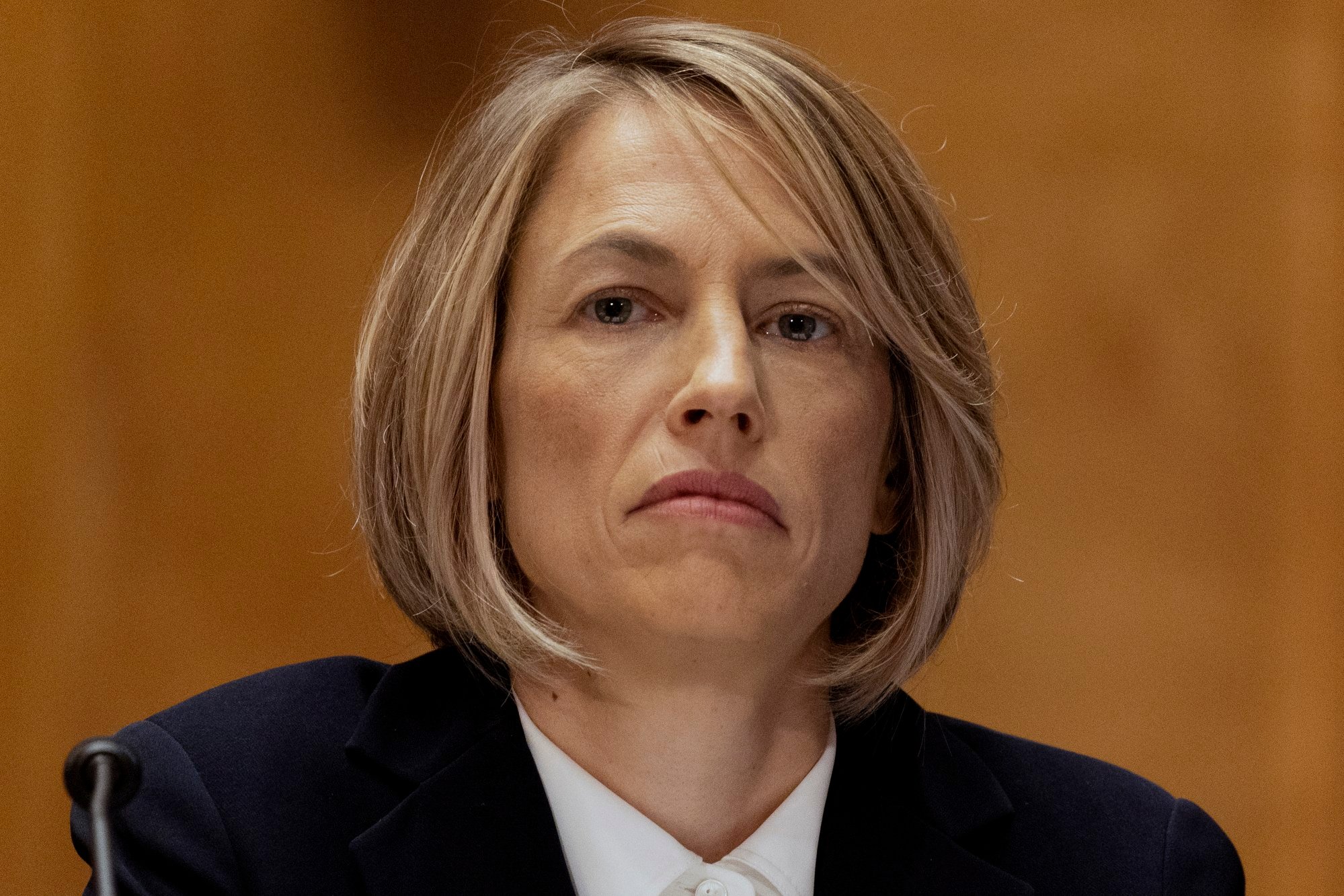
In TikTok’s early days, after it was created in 2017, ByteDance often sent a management team to local markets to help grow the platform. The business unit did not get its own CEO until 2020, when ByteDance hired Walt Disney’s Kevin Mayer for the role while pressure from the Trump administration was at its highest.
“ByteDance is led by its technology-oriented founders, and has likely gotten good advice on management and global expansion from its venture capital and private equity partners”, said Albright’s Triolo.
Triolo said that if TikTok’s “US solution to the user data access issue can be resolved, this may serve as a model for other markets, and this would boost the global expansion prospects for ByteDance”.
US user data is protected, TikTok CEO assures in congressional letter
ByteDance does not have any precedent to refer to, as it is the first Chinese internet firm to find global success on this scale. Chew said in a March interview with Bloomberg that it was “challenging to build a global company” because “you need to be global and local at the same time”.
“The Chinese government’s monitoring of ByteDance and its business operations falls under the broader technology regulatory rectification campaign launched in 2021 in response to growing concerns about how large tech companies were engaging in behaviour that was damaging consumer interests,” said Triolo.
“The Chinese government’s influence on the company is primarily regulatory and indirect.”


